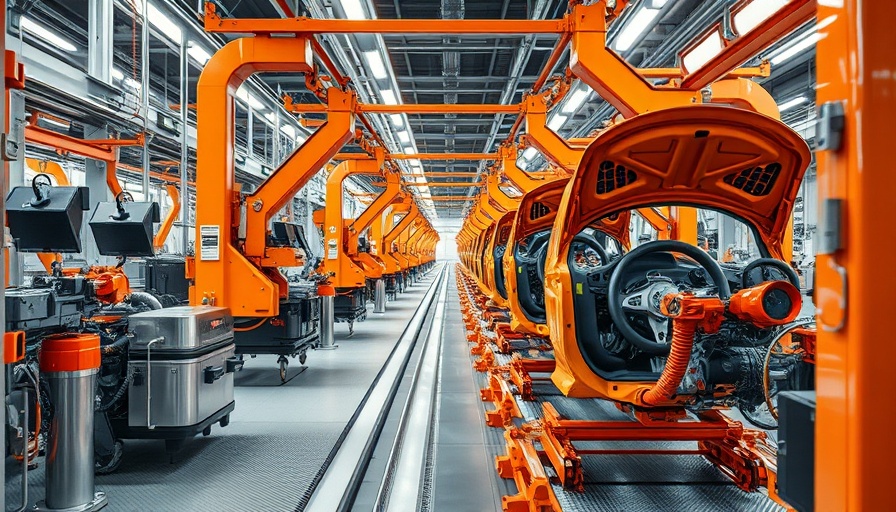
SEAT Martorell's Green Leap: What’s Happening?
SEAT, the Spanish automotive brand representing the Volkswagen Group, is on the verge of a historic transformation as it redefines its Martorell plant for electric vehicle (EV) production. This initiative signifies a pivotal shift not only for the company but also for Spain's automotive landscape, as the factory aims to produce electric vehicles from 2025 onwards. With an investment of €3 billion allocated towards this ambitious project, the Martorell plant is poised to serve as a cornerstone in the collective momentum towards electrification within the European automotive sector.
Building the Future: SEAT's Strategic Framework
The transformational plan encompasses five key pillars: people and organization, electrification and product, end-to-end production (E2E), digitalization, and sustainability. Each pillar is designed to synergize the workforce and technology, ensuring a successful transition from traditional combustion engines to electric propulsion. This holistic approach is not only essential for operational efficiency but also for fostering an inclusive culture around adopting new technologies. Training programs are being put in place to upskill 12,000 employees, enabling them to navigate this exciting transition.
Cultural Shift: Embracing the Electric Revolution
As SEAT embarks on its journey to electrification, a significant cultural transformation is required within the workforce. The introduction of electric vehicle production demands a unique mindset, aligned with advanced technologies such as big data and virtual reality. According to Wayne Griffiths, SEAT’s CEO, this is a critical period for the company—one that can redefine the identity of the Martorell factory. Notably, the production of the CUPRA UrbanRebel will contribute to this cultural shift, symbolizing modern innovation and a commitment to a sustainable automotive future.
Economic Implications: Driving Local Advancement
This transformative project is expected to inject more than €21 billion into the Spanish economy as it rolls out. With SEAT leading the Small Battery Electric Vehicle development, the initiative's impact extends beyond the factory floor. Local businesses can expect a ripple effect as demand increases for components, services, and infrastructure to support EV production. Furthermore, transitioning to electric vehicles can help align Spain with broader environmental goals, addressing climate change while boosting local industry.
Production Milestones: A Legacy of Excellence
Since opening in 1993, the Martorell factory has produced over 12 million vehicles, including iconic models like the SEAT Ibiza and Leon. As production starts to embrace electric alternatives, SEAT aims to maintain its legacy while advancing into the next chapter of automotive history. Martorell's ongoing evolution symbolizes the region's adaptation to global trends in mobility, remaining at the forefront of innovation in the automotive industry.
Conclusion: Embrace the Change or Get Left Behind
The transformation of SEAT’s Martorell plant is a profound reminder that the automotive industry is shifting quickly towards electrification. For dealership owners and general managers, understanding these developments is crucial to stay relevant in the marketplace. Adopting new training techniques and emphasizing the importance of EV knowledge in your sales strategy will be vital as consumer preferences inevitably change. By preparing now, you can ensure that your business thrives in the electric age. To stay informed about these essential automotive shifts, consider regularly engaging with industry news and training resources tailored to elevate your operational strategies.
 Add Row
Add Row  Add
Add 




Write A Comment